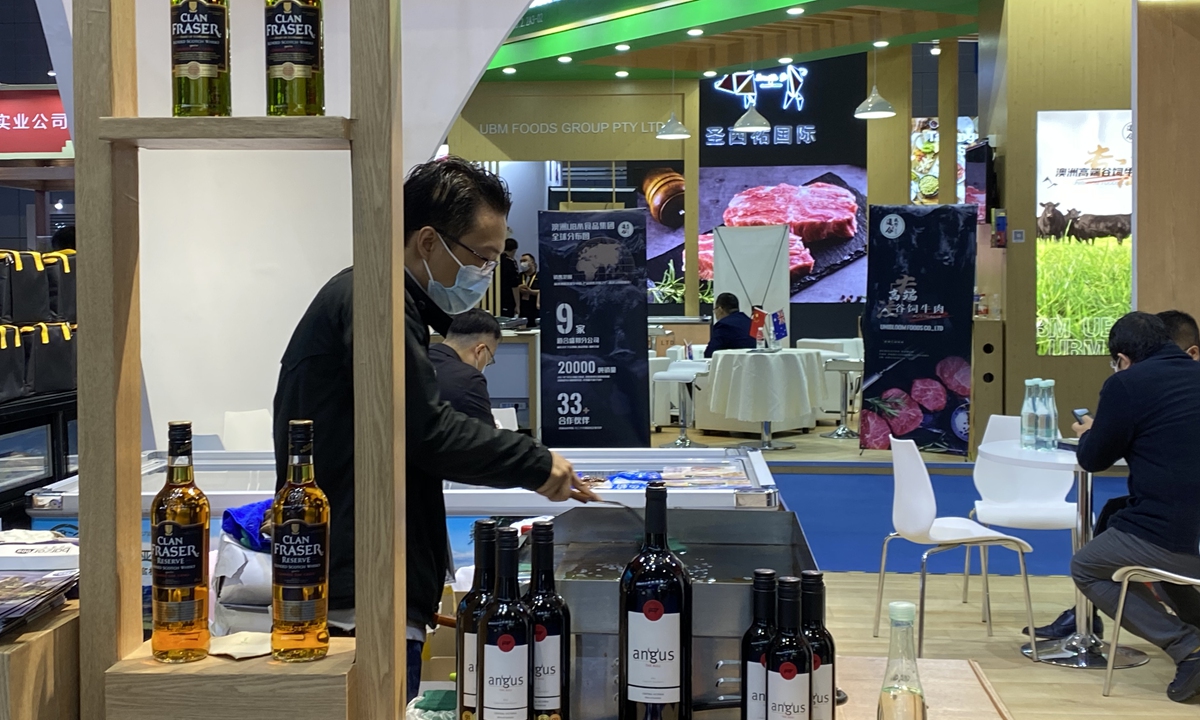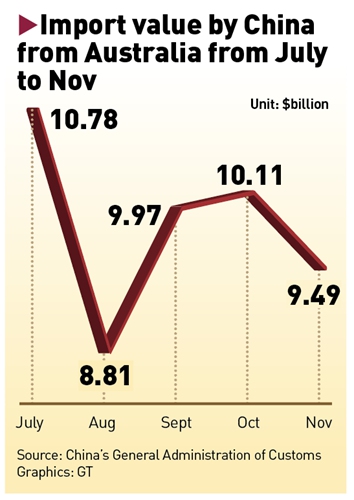Australia’s exports to China continues to drop amid trade tussle
Source: Global Times Published: 2020/12/7 19:59:28

An Australia exhibitor displays cooking oil at the third China International Import Expo. Photo: Xie Jun/GT
China's trade with Australia declined further in November amid soured political ties, and it fell 0.9 percent year-on-year in the first 11 months of the year, Chinese customs data showed on Monday.
Total bilateral trade stood at $153.15 billion from January to November with $47.85 billion worth of exports and $105.3 billion in imports, data from the General Administration of Customs showed on Monday.
What's more, China's imports from Australia dropped by 4.9 percent from January to November, but exports surged by 9.4 percent year-on-year, rebutting calls by some in Australia to boycott Chinese products.
In the first 10 months of the year, China's imports from Australia fell by 6.1 percent year-on-year.
Bilateral ties have fallen to a decade low, and there are reports that some Australian exports, including millions of tons of coal and several tons of lobsters, are stranded at Chinese customs due to quality issues.
Song Wei, an associate research fellow at the Chinese Academy of International Trade and Economic Cooperation, said that China's imports of Australian products have been declining since June, and total two-way trade began to shrink from year-earlier levels starting in August.
"The decline in imports is a direct result of recent trade tussles between China and Australia, but we see Chinese exports continue to post growth due to their advantages in prices and quality," Song told the Global Times on Monday, predicting China's exports to Australia still have room for growth, with the latter's heavy reliance on Chinese light industrial goods and daily consumer products.

The continuous decline of China's imports of Australian products has left some in Australia worrying about its growth model that has relied heavily on resource exports. Even for the all-important iron ore trade, Australia's share in China's imports has been decreasing.
The combined share of Australian iron ore producers decreased to 57 percent of total Chinese imports in October from a high of 68 percent in May, data from industry portal Beijing Lange Steel Information Research Center showed.
From January to October, Australian iron ore accounted for 61.4 percent of China's total iron ore imports, down 0.7 percentage points from the same period in 2019.
China slapped an 80-percent tariff on Australia barley after anti-dumping and anti-subsidy investigations, and it has taken provisional anti-dumping measures on Australian wine.
Several major beef exporters have been blacklisted due to quality issues.
Global Times
Posted in: ECONOMY